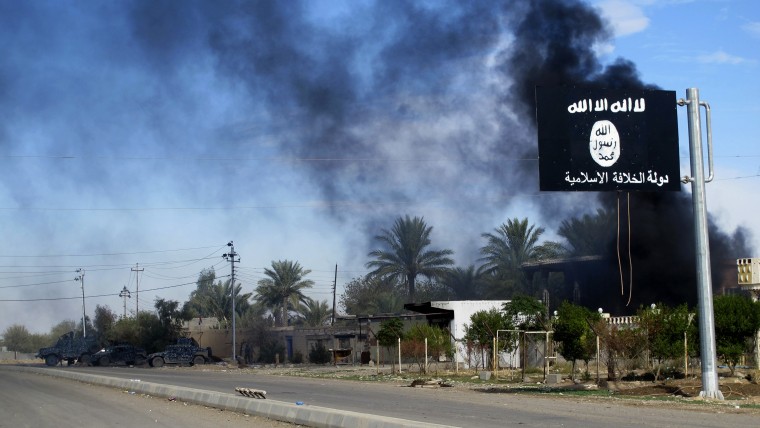Back in February, Wisconsin Gov. Scott Walker (R) insisted the United States must "aggressively ... take the fight to ISIS" and demonstrate that "we're willing to take appropriate action" against terrorist targets. It led ABC's Martha Raddatz
to ask Walker, "You don't think 2,000 air strikes is taking it to ISIS in Syria and Iraq?" The governor didn't answer.
It was part of a familiar, months-long
pattern: the more President Obama launched military offenses against ISIS targets in the Middle East, the more Republicans pretended those strikes weren't happening.
This is, oddly enough, still happening. Over the weekend, Walker
told a Republican audience in Iowa that Americans "need a commander-in-chief" who'll "act" on the terrorist threat. At the same event, Louisiana Gov. Bobby Jindal (R)
questioned why the president isn't doing more to target terrorist leaders. The governor challenged Obama to "do his job" and "hunt down and kill these terrorists."
It seemed as if Walker and Jindal had absolutely no idea what had transpired less than 24 hours earlier. NBC News
reported over the weekend:
U.S. Special Operations Forces killed a senior leader of ISIS overnight Friday during a rare and risky ground raid in Syria and freed a young woman who was enslaved in his compound, the White House announced Saturday. American Delta Force commandos took off from northern Iraq in Blackhawk helicopters and Osprey aircraft, going deep into ISIS-controlled territory with no allies on the ground. Their target, SIS leader Abu Sayyaf, did not go down quietly. [...] Twelve enemy fighters were killed in the operation, while no American forces were hurt, U.S. officials said.
Sen. Dianne Feinstein (D-Calif.), vice chair of the Senate Intelligence Committee, called the strike "
picture perfect."
That said, the news was far less encouraging yesterday. NBC News
reported overnight:
ISIS militants took control of the Iraqi city of Ramadi Sunday, according to a senior Iraqi security official, dealing a strategic blow to Iraqi forces trying to push ISIS fighters out of key cities. The terrorist group had raised their black flag over the local government compound in Ramadi, which is about 60 miles west of Baghdad, on Friday. On Sunday, 90 percent of the city was under ISIS control, according to the Iraqi official said.
Overall, the mission against ISIS has made
considerable progress in recent months, but this is obviously an important setback.
As for Congress and its ongoing reluctance to authorize the mission against ISIS, the Republican-led U.S. House last week
voted to "keep funding a war it hasn't debated, authorized or even voted on."
